There’s no question that Calais is a prime spot for cross-Channel shopping. In my experience, everything from wines and champagnes to everyday products can be significantly cheaper here than in the UK, making a day trip or weekend visit well worth it.
Bargains and Variety
You’ll often find prices up to 20% lower and, in some cases, even more—especially for wine, spirits, and French gourmet treats. Rue Royale, Calais’ most popular shopping street, has seen lots of modern updates over the years. The stylish Passage Royale hosts an array of small boutiques and cafés/bars, while Rue Royale itself is dotted with speciality shops that are fun to explore.
At number 61, you’ll find Rene Classe, featuring elegant designer crockery and porcelain by Lalique, Christofle, and Baccarat crystal—all typically cheaper than equivalent UK shops. Just next door at 65 is Brulerie La Tour, offering around 70 varieties of tea, and at 67, you’ll discover Au Royal Chocolate, a charming chocolatier once favoured by King Henry IV.
Farther into town, near Boulevard Jacquard and Boulevard Lafayette, you’ll encounter the new Living Centre. Calais is also world-renowned for its lace-making heritage. If you’re in the market for authentic lace items, Royal Dentelle at 106 Boulevard Jacquard sells everything from lace placemats and tablecloths to delicate lingerie.
For a broader shopping experience, consider heading to the village of Coquelles for Cité Europe, or designer discounts, check out Marques Avenue Factory Outlet.
Top Tips for a Smooth Trip
- Sales Seasons: France typically holds major sales in January and June, lasting around five to six weeks. You can score incredible deals during these periods.
- Trolley Coins: Keep a one-euro coin handy for shopping trolleys at supermarkets—refunded upon return.
- Cooling Essentials: Bring an insulated bag or cooler for fresh cheese or seafood.
- Fresh Baguettes: Delicious as they are, baguettes go stale quickly, so it’s best to enjoy them while still in France.
- Opening Hours: Most shops open Monday to Saturday, around 9 a.m. to 7 p.m., often closing for lunch between 12 p.m. and 2 p.m. Many independent stores now remain open all day, and bakeries or wine shops may open on Sunday mornings.
- Duty-Free Limits: Post-Brexit rules for alcohol and tobacco allowances have changed. Always confirm the latest guidelines to avoid misunderstandings at customs.
- Payment Methods: Credit cards and cash are widely accepted; Eurocheques are generally not.
- Car Weight Limits: Keep an eye on how much you’re loading up. You don’t want a fine for overloading when you get back home.
Alcohol and Tobacco Guidelines
Since the UK left the EU, duty-free regulations have evolved. While you can typically bring back a generous personal allowance, these rules do change. Always consult the official HM Revenue & Customs or French Customs websites for the most up-to-date limits. Bear in mind that goods should be for personal consumption or given as gifts—anything else may be considered commercial importing.
Common personal allowances include:
- Beer: 110 liters
- Wine: 90 litres (of which up to 60 litres can be sparkling)
- Spirits: 10 liters
- Fortified wines (Port, Sherry): 20 litres
- Cigarettes: 800
- Cigarillos: 400
- Cigars: 200
- Rolling Tobacco: 1 kg
(These figures are subject to change; always verify before you travel.)
Stay Informed
Whether it’s your first time popping across the Channel or you’re a seasoned Calais shopper, (then be sure to check out the wine section!) it pays to stay updated. Keep an eye on local regulations, store hours, and holiday closures—especially around public holidays. If you plan ahead, you’ll enjoy a smooth, efficient, and cost-effective trip every time.

